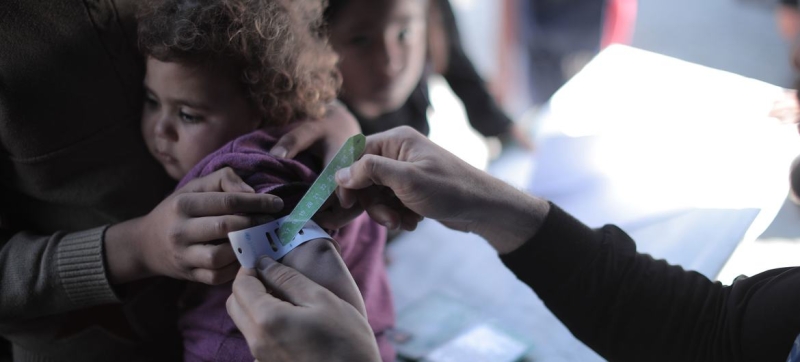
WHO and its partners are supporting dedicated stabilization centers to treat severely malnourished children and are working to open additional facilities. WHO: $7 billion will be needed to restore Gaza’s health system Humanitarian assistance
Two years after the start of the war in Gaza, the World Health Organization is preparing for the “day after the conflict” and already has a “clear vision of where and how to move forward.” This was stated by WHO Regional Director Hanan Balkhi, speaking to reporters on the eve of the 72nd session of the WHO Regional Committee for the Eastern Mediterranean.
Amid diplomatic efforts in Gaza, Balkhi said, “there is finally a glimmer of hope that the end of the war is near.”
System on the brink of collapse
Out of 36 hospitals, WHO says Only 14 sectors are functioning, partly due to lack of electricity, water, medicine and damaged infrastructure. WHO, which provides all fuel supplies for hospitals and ambulances, has already delivered 17 million liters. However, as Balkhi emphasized, “much more is needed.”
The delivery of vital medications, from antibiotics to bandages, is also urgently required.
Hunger and exhaustion
The situation is complicated by hunger and malnutrition. According to Palestinian authorities, 455 people have died from malnutrition since January, including 151 children, mostly under five years old. More than half a million people live “in conditions close to famine,” and over a million more suffer from severe food shortages. warned Balkhi.
WHO and its partners are supporting dedicated stabilization centers to treat severely malnourished children and are working to open additional facilities. At the same time, as a representative of the organization noted, long-term recovery requires “reviving food systems, water supplies and strengthening sanitation – these are the foundations of public health.”
Destroyed clinics and depleted health workers
Of 176 primary health centers, “only a third remain partially functional.” The WHO regional director called for the urgent restoration of these facilities to return to the enclave’s residents “vaccinations, obstetric care, pharmacies and psychosocial services.” More than 1,700 healthcare workers have died since October 2023. Those who continue to work need protection, wages and psychological support,” said Balkhi.
“Better than it was”
WHO estimates that rebuilding the health sector will cost more than $7 billion. These funds should be aimed at both “humanitarian response and early recovery” and “long-term needs.” Palestinian institutions should take the lead.
“As we undertake reconstruction, we must build back better,” the regional director said. “Gaza’s health system must be more resilient and equitable than before the war.”
She said hospitals should be provided with renewable energy, clinics with clean water systems, and health information networks should be upgraded to help “monitor disease outbreaks and plan for future ones.” action.”
WHO “remained and operated in Gaza during every bombing and power outage,” Balkhi emphasized. The agency “has become a major supplier of medicines and equipment,” providing more than 22 million treatments and surgeries, and organizing the evacuation of more than 7,800 seriously ill patients. Director of WHO.
